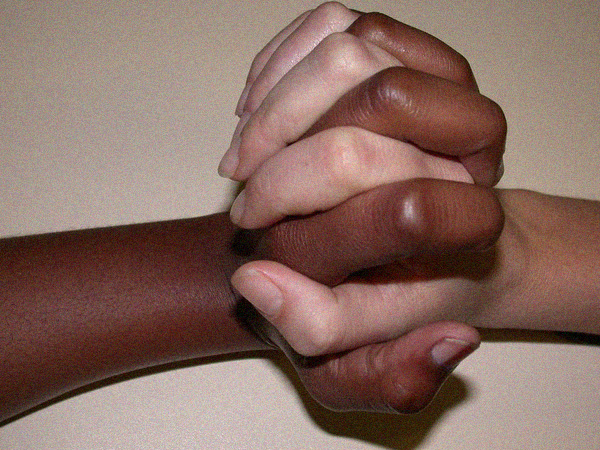
We threw open the windows. Our skin baked in the hot summer sun. Sweat soaked our shirts, cooling our backs in the swimming southern heat. We were a crop of do-gooder church Caucasians in our stride, riding down to Greenwood, Mississippi. Our bus brimmed with empathy: For the school children struggling with racist teachers. For the grandmothers raising their grandchildren. For the young black men our own age who craved an education but couldn’t get to college.
We traveled, the 14 of us, in a re-configured old school bus. The seats in the back had been taken out, and we’d packed the space with supplies the community needed: Powdered milk. Canned vegetables. Bisquick. Cooking oil. Crayons and construction paper for the Headstart center. We drove through all 16 hours, taking turns at the wheel. We sang songs. John Lennon, “Give Peace a Chance.” “Get Together,” by the Youngbloods. “Lean on Me” by Bill Withers. We arrived in poor country mid-day. Shacks with outhouses. Small farm cabins. New HUD housing—four-rooms, a kitchen-and-bath. We split up and went with our house hosts. Three of us women stayed with one family—a mother, grandma, three daughters and a son. Six of us, all females, slept in one room in two single beds. We folded our bodies together like fish in a tin, sweating, breathing lightly, dreaming of cool dips in a moving stream. The son slept on the couch in the living room. Each morning, at Headstart, we fed toddlers and played games with them. We taught the 5-year-olds the alphabet. The teen aides told us their white school teachers hit their arms with rulers and sent them home if they came to school with an Afro.
We befriended Eli, short for Elijah. He was 19, like me. He studied sociology at a small local college. One night he brought us all some local moonshine. We sipped the clear gut-rot, leaning against a wooden fence, until the full moon wobbled and the stars streaked across the midnight sky. We stumbled home through a cow field and sat on the concrete steps of our HUD house. The mother came out and joined us with an ice tea.
“Do you ever think of leaving here?” I asked her.
“No ma’am. Where would I go?” she answered.
When the time came to go back North, Eli and his friend rode with us. They wanted to see Chicago. He told us he was “born in the delta and raised to stay there,” but the idea of coming North to a university was his post-MLK dream. “He gave his life for it,” Eli said. He and his friend were going to take a weeklong college prep program sponsored by our church.
Eli and I sat up and talked all night on the bus trip. We’d both had to read Introduction to Sociology. We’d both killed cockroaches; I learned the ones in the South were bigger and hardier than ones up North. He liked me, and I liked him. He wanted to be friends, he told me, taking my hand. We held hands lightly for a good hour. Eli rested his thumb on the flesh of my knuckles. Soon, I closed my eyes and dozed until the sun came up.
Back at our Northwestern campus, Eli and his friend stayed in one of the dorms. I went home to Rockford for a week. Eli asked if he could come and visit me.
“It’s an hour’s drive,” I said.
“I’ll borrow a car,” he said.
Dad The Exterminator was blunt and unwavering. “I don’t want him stepping into my house. He’ll see what we have and come back for it.”
“He’s my friend!”
“He’s not your friend. You don’t even know him. And forget that college line, he’ll never get in, except that nowadays they let them in and give them good grades just because they’re black.
“Besides, you need to wise up. The black man wants to get in the white girl’s pants.”
They. Them. Crooks. Coveters of white women. No Count Colored Boys. Mom sat there at the kitchen table and listened silently as he went on and on.
Eli arrived. I met him on the front steps of our house in our working-class neighborhood. My neighbor, the mean Norwegian, watched us from his porch. “My dad’s old-fashioned. He . . . well, we can’t go in right now. Let’s go to Burger King.”
Eli nodded and said he understood. He reminded me that he grew up in a town that had separate water fountains until he was 10 years old.
At the restaurant, Eli insisted on paying. We shared a burger and a large fry. Two old men reading the paper stared at us with shock as we took bites from the same hamburger. As we left, one of them gave me a dirty look. Eli drove me back to my neighborhood, but we didn’t’ park in front of my house. Instead, we parked in front of the playground where I spent my summers as a kid. We held hands. I told him how, as an adolescent, the playground was my little world of gossip and intrigue. How it was the site of my first crush seven years ago and my first kiss with a boy. Then, when the time came, Eli lowered himself in the seat, and I lowered myself next to him. We moved close to each other. I stared at his lips, and we kissed. But quickly. Skin deep. Almost as if we didn’t really want to.
Nobody saw us, but it felt as if the whole world knew.
